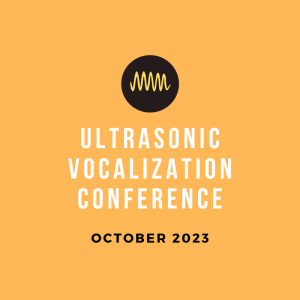The 3rd Ultrasonic Vocalizations Conference Lecturers Team

Jeffrey Burgdorf
Jeffrey Burgdorf, Ph.D. is a neuropsychopharmacologist and is presently both a Research Associate Professor in Biomedical Engineering at Northwestern University and the Director of Discovery Science at Aptinyx Inc in Evanston, Illinois. Using rat ultrasonic calls as a model of positive and negative affect, he has contributed to the development of novel therapeutics for psychiatric disorders. Recently, using a neuroethological approach to the study of ultrasonic vocalizations, he has proposed a new model of emotion processing in the brain and is currently developing a novel translational EEG-based measure of emotion based on his findings.

Nicola Simola
Nicola Simola (NS) works in the fields of behavioral pharmacology and behavioral neuroscience. NS holds a MS in Pharmaceutical Chemistry (2003) and a PhD in Pharmacology of Addiction (2007), both from the University of Cagliari. Moreover, NS was Post-Doctoral Researcher at the University of Texas at Austin (2007-2009) and Visiting Scientist at the University of Chile (2011, 2013, 2019) and at William Paterson University of New Jersey (2019). NS is currently Associate Professor of Pharmacology at the University of Cagliari. NS’s current research activity focuses on the use of experimental rodent models of behavioral pharmacology and immunohistochemistry techniques in the study of neurodegenerative diseases, neuropsychiatric diseases, drug dependence, and neurotoxic/neuroinflammatory effects of synthetic psychostimulants. Since 2010, NS leads a laboratory of bioacoustics at the University of Cagliari which has contributed major findings to the pharmacological characterization of rat vocal communication as a tool to investigate the presence of altered emotionality in experimental models of brain disease. NS is author of more than 90 publications in international journals with impact factor and international scientific books.

Markus Wöhr
Markus Wöhr, Dr. rer. nat. (Ph.D.), is Professor for Biological Psychology and Behavioral Pharmacology at KU Leuven, Belgium. He is a member of the Leuven Brain Institute and the head of the Social and Affective Neuroscience Research Group at the Faculty of Psychology and Educational Sciences. At present, he is also holding a Young Investigator Group Leader position at the Department of Behavioral Neuroscience, Faculty of Psychology, Philipps-University of Marburg, Germany.
He has a broad background in animal behavior and pharmacological research in translational models for human mental disorders, with specific training and expertise in behavioral neuroscience of affective and neurodevelopmental disorders. His main research interests are social and affective neuroscience. Together with his teams, he combines genetic, pharmacological, and behavioral approaches and studies neurobiological mechanisms underlying social behavior, acoustic communication through ultrasonic vocalizations, and socio-affective information processing in mice and rats. His long-term goal is to decipher socio-affective communication through ultrasonic vocalizations in rodents with the aim to improve translational research models for affective and neurodevelopmental disorders, most notably autism.
website | Google Schoolar | Researchgate | twitter

Stefan Brudzynski
Stefan M. Brudzynski, Ph.D. (Univ. of Łódź), D.Sc. (PAN, Warsaw), is a neurophysiologist and neuroscientist, presently Professor Emeritus in the Department of Psychology at Brock University, St. Catharines, Ontario, Canada. Professor Brudzynski, a former Director of the Centre of Neuroscience and Professor of Psychology and Biology at Brock University, is the recipient of the prestigious Outstanding Achievement Award from the International Behavioral Neuroscience Society for his contribution to the field of Behavioral Neuroscience.
Professor Brudzynski is editor of two handbooks on mammalian vocalization and ultrasonic vocalization published by Academic Press/ Elsevier and recipient of the Elsevier Award for exceptional contribution to the quality of Behavioural Brain Research. Professor Brudzynski’s main research interests are in the neural regulation of animal behavior, and particularly, central control of ultrasonic vocalization and communication in rodents. His current research is focused on vocal expression of emotional states and brain systems for emotional arousal.
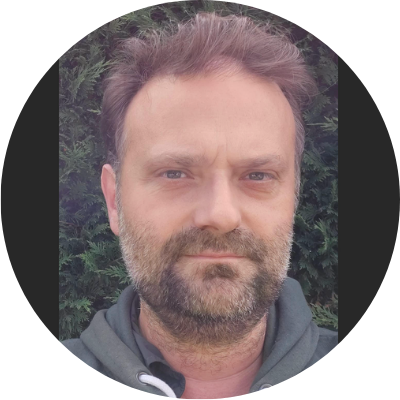
Fabrice de Chaumont
Fabrice de Chaumont, Ph.D. in robotics, is a research engineer in the Human Genetics and Cognitive Functions lab headed by Thomas Bourgeron at Institut Pasteur France. He is originally working in image analysis, machine learning, and developed the Live Mouse Tracker system http://livemousetracker.org with Elodie Ey (IGBMC Strasbourg). He is now involved in the study of ultrasonic vocalizations, he created yet another method to extract USV automatically http://usv.pasteur.cloud and extended Live Mouse Tracker so that ultrasonic vocalizations are now synchronized with behavior analysis. He is always trying to make his systems as friendly as possible and tries to ease the use of big behavior data for everyone.

Jumpei Matsumoto
Jumpei Matsumoto, Ph.D. is a neurophysiologist and neuroscientist. He is an assistant professor in the Department of System Emotional Science in University of Toyama, Japan. He has been studied neural mechanisms of emotion and social behavior using behaving animals. To facilitate such studies, he has developed new tools for measuring and analyzing animals’ natural behavior, such as 3D markerless motion capture systems for interacting animals (Matsumoto et al., 2013). Recently he developed USVCAM (Matsumoto et al., 2022), an acoustic camera system for ultrasound communications in rodents, with Dr. Kouta Kanno (Kagoshima University, Japan).

Adam Hamed
Adam Hamed, Ph.D. is a neuropsychopharmacologist, pharmacist and neuroscientist, presently researcher in Laboratory of Spatial Memory, Nencki Institute of Experimental Biology, Polish Academy of Sciences. His main research is related to individual differences in the activation of the reward system controlled by the emission of ultrasonic vocalization, and biological and neurochemical basis of this phenomena. His research interest is focused on building neurochemical maps (patterns) of activation of the reward system in different behavioral models related to social interactions, drug addiction, and reward prediction. This kind of maps will provide finding new potential mechanisms of drug action in many neuropsychiatric disorders related to reward processing.

Miron Kursa
Miron Kursa holds M.Sc. in Physics and Ph.D. in Computer Science, works for Interdisciplinary Centre for Mathematical and Computational Modelling at the University of Warsaw, where he teaches data science. He is and expert in intelligent systems, data analysis and computational modelling. His current research considers ensemble learning, automatic knowledge extraction and stochastic modelling of complex phenomena. He had participated in many research projects in a wide range of disciplines, including bioinformatics, neurobiology, remote sensing, audio analysis, agriculture, power engineering and air transport, and developed many novel algorithms and methods.

Sylvie Granon
Sylvie Granon is a French researcher. She holds a PhD in Neuroscience from Marseille (France) under the supervision of Bruno Poucet and was trained as a postdoctoral fellow at the University of Cambridge in Trevor Robbins lab. She worked formerly at the Pasteur Institute in Paris with JP Changeux before establishing her group in Paris-Saclay University where she is also a Professor of Neurobiology. Her research aims at understanding the neural and neurochemical bases of decision-making. She designed novel behavioral tasks to dissect these complex processes in mice, particularly social tasks, and a Mouse Gambling Task which allows the manipulation of probabilistic reward delivery. With her team, she unraveled individual strategies and showed that they rely on individual levels of regional brain monoamines and on the interplay between the prefrontal cortex, the reward system and limbic circuits. She now investigates how manipulations of these circuits by exposure to various environmental factors such as social environment, sleep restriction, stress or specific food rewards can trigger, shape or reshape, at different ages of life, decision-making strategies. Her work sheds a new light on the neural bases of individual variability, its development and dynamic.

Paul Clarke
Paul Clarke is a British-Canadian behavioural neuroscientist based in Montreal. After degrees and postdoctoral training (MA Cambridge, PhD KCL Institute of Psychiatry, NIMH and UBC Vancouver), he joined McGill University’s Dept of Pharmacology and Therapeutics; he is also a member of Concordia University’s Center for Studies in Behavioral Neurobiology, also in Montreal. His research interests include brain mechanisms underlying the reinforcing effects of drugs (nicotine, psychostimulants and opioids), the application of biosensors to monitor intracellular signalling in the brain of freely-moving rodents, and the behavioural significance of rat ultrasonic vocalizations. Currently, his group is trying to better understand whether distinct types of 50-kHz calls are associated with positive or negative emotional states that are induced either by drugs (or drug withdrawal) or through social interactions.
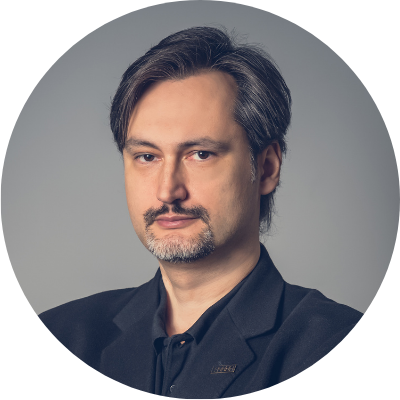
Paweł Boguszewski
Dr. Boguszewski is a neuroscientist and behaviorist, head of Laboratory of Behavioral Methods, core-facility at the Nencki Institute of Experimental Biology in Warsaw, Poland. He has been specializing in the design and analysis of animal behavioral tests for basic and applied biomedical research. He is the author of several computer programs for analyzing data from behavioral studies. Dr. Boguszewski is a graduate of the Faculty of Biology at Warsaw University. He received his Ph.D. degree at the Nencki Institute and completed his scientific internship at Yale University in the USA.

Özge Sungur
Dr. Özge Sungur is a postdoctoral researcher at KU Leuven, Belgium. She received her BS in Molecular Biology and Genetics from Bilkent University, her MS in Integrative Neuroscience from Magdeburg University and her PhD in Behavioral Neuroscience from Philipps University Marburg. Her current research focuses on the neurobehavioral analysis of genetic mouse models for neurodevelopmental and psychiatric disorders.
website | Google Schoolar | Loop
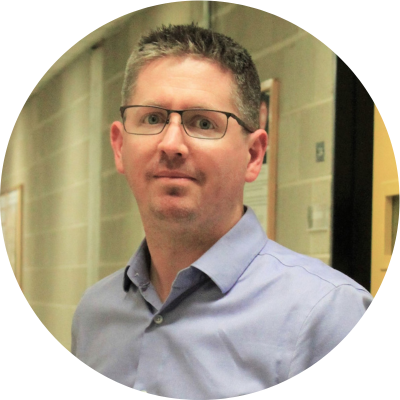
David Barker
David J. Barker, Ph.D. is a behavioral neuroscientist and assistant professor in the Department of Psychology at Rutgers University. He began his research career in behavioral psychology at Arizona State University before completing his Ph.D. at Rutgers University. He then accepted a prestigious postdoctoral position at the National Institute on Drug Abuse Intramural Research Program before starting his own lab back at Rutgers. Dr. Barker was an early adopter of ultrasonic vocalizations as a method for modeling affective processing in animal models of substance use disorders. His innovative research has provided crucial insights into the neurobiological underpinnings of drug addiction, shedding light on the behavioral, molecular, cellular, and systems-level changes that occur in the brain following prolonged drug use. His studies have not only expanded our knowledge of the neural pathways involved in addiction but have also paved the way for the development of novel therapeutic interventions.

Bernhard Englitz
Bernhard Englitz studied cognitive science and mathematics in Germany and received his Ph.D. from the Max-Planck-Institute for Mathematics in the Sciences in Leipzig. After research stays in the US and France, he started his own line of research and lab (Computational Neuroscience Lab) at the Donders Institute @ Radboud University in Nijmegen/Netherlands. His lab works at the intersection of behavior and neural representation, using advanced computational tools in the analysis. A recent focus has been on advancing the methods for localizing and classifying ultrasonic vocalizations to better understand communication under natural conditions.

Robert Kuba Filipkowski
Robert Kuba Filipkowski, Ph.D., is a behavioral neuroscientist with background in molecular and cellular biology, including studies on transgenic animals and gene expression in the brain. Presently, he heads the Behavior and Metabolism Research Laboratory at Mossakowski Medical Research Institute, Polish Academy of Sciences, Warsaw, Poland. His research interests include the functional significance and nuclear dynamics of adult hippocampal neurogenesis as well as the communication between rats with ultrasonic vocalizations. His current research is focused on playback studies, i.e. studying rat behavioral and physiological responses to recorded ultrasonic vocalizations.

Agnieszka Potasiewicz
Dr Agnieszka Potasiewicz obtained her Ph.D. in 2018. The title of her Ph.D. studies was „The effects of ligands of the alpha7 nicotinic acetylcholine receptors on impaired cognitive processes in animal models of schizophrenia”. Currently, she is the post-doc in the Department of Behavioural Neuroscience and Drug Development, Maj Institute of Pharmacology, Cracow, Poland. Agnieszka’s scientific interest is focused on the research of novel pharmacotherapies of the negative symptoms and cognitive impairment in schizophrenia.

Elodie Ey
Elodie Ey is a CNRS researcher with an ethology and bioacoustics background. After a PhD thesis on the adaptation of contact vocalisations in wild olive baboons in the German Primate Centre in Göttingen, Germany, she focused her interests in social communication in rodents. She is interested in unravelling the functions of ultrasonic vocalisations in the organisation of groups of mice and rats. She applies this knowledge to better adapt and interpret the behavioural phenotyping of mouse and rat models of autism spectrum disorders, which primarily affects social communication. She conducted these projects at the Institut Pasteur, Paris, in the team headed by Prof Thomas Bourgeron, and now at the IGBMC near Strasbourg in the team headed by Dr Yann Hérault.
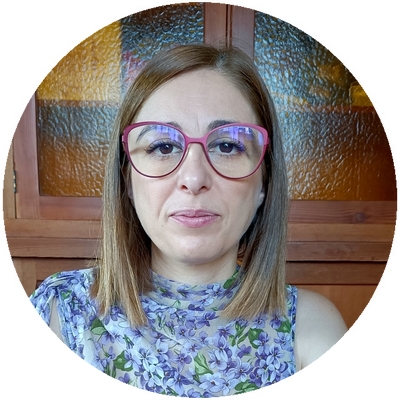
Angela Caruso
Angela Caruso, PhD, is a psychobiologist at the Italian Institute of Health, Rome, Italy. Her main research interest is in animal vocal communication during neurodevelopment in normal and pathological conditions. Currently, her research is focused on studies of the emission of neonatal ultrasonic vocalizations with emphasis on the spectrographic analysis in genetically modified mouse lines to study socio-communicative deficits in neurodevelopmental disorders, such as autism spectrum disorders.
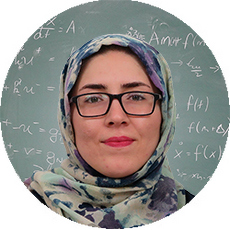
Reyhaneh Abbasi
Reyhaneh Abbasi holds a master’s degree in biomedical engineering from Amirkabir University in Tehran. Currently, she is pursuing a PhD in neuroscience at the acoustic research institute at the Austrian academy of sciences. Her main research interests are the application and development of signal processing and machine learning algorithms in biological studies. Her current research is dedicated to enhancing the processing of Ultrasonic Vocalization (USV) signals and developing innovative deep learning tools for clustering and classifying USVs. Additionally, her work involves sequence analysis and the identification of mouse individuals based on their USVs.

Shimpei Ishiyama
Shimpei Ishiyama, Ph.D., holds the position of Junior Research Group Leader in neurobiology at the University Medical Center of the Johannes Gutenberg-University Mainz, Germany. Specializing in systems neuroscience, his previous works include neural correlates of ticklishness, self-touch suppression of ticklishness and vicarious ticklishness in the rat somatosensory cortex. Recently, his research has been focusing on the study of playful emotions in rats. Employing techniques such as in vivo freely-moving electrophysiology, behavioral analysis, and neuroanatomy, his work aims to elucidate the neural underpinnings of naturalistic behaviors.

Kevin Coffey
Dr. Coffey is a behavioral neuroscientist who received his PhD at Rutgers University, completed a postdoc at the University of Washington, and will begin as a Research Assistant Professor at the University of Washington in November 2023. His research aims to identify the neural mechanisms underlying substance use disorders and maladaptive decision making using a deep toolkit of neurophysiology, molecular biology, and computational techniques. Dr. Coffey is also the lead developer for DeepSqueak v3, a software package for ultrasonic vocalization analysis that combines cutting-edge machine learning techniques with an intuitive graphical use interface to accelerate bioacoustics research.
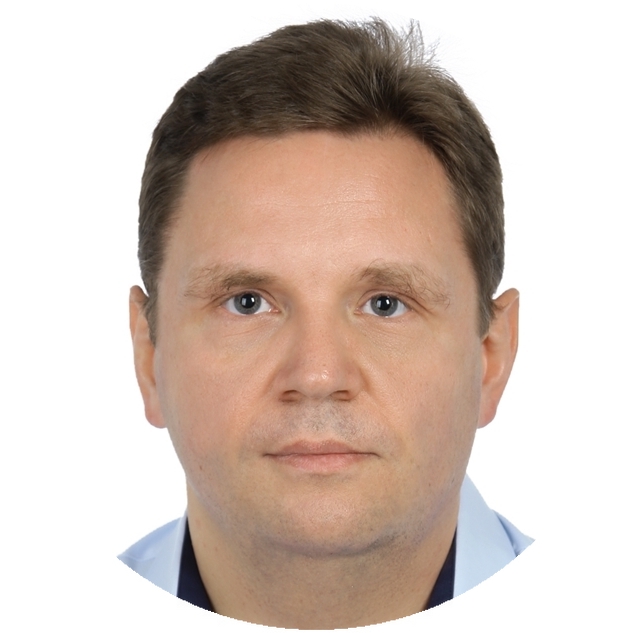
Tomasz Górkiewicz
Tomasz Górkiewicz, Ph.D. is a neuroscientist working as a staff scientist at the Laboratory of
Emotions, Nencki Institute of Experimental Biology, Polish Academy of Sciences. His scientific
interests are focused on social buffering in rats, socially motivated learning, and synaptic plasticity.
Dr. Górkiewicz graduated from the Faculty of Biology, Silesian University in 2005?. In 2011 he
received his Ph.D. degree in neurobiology at the Nencki Institute.
